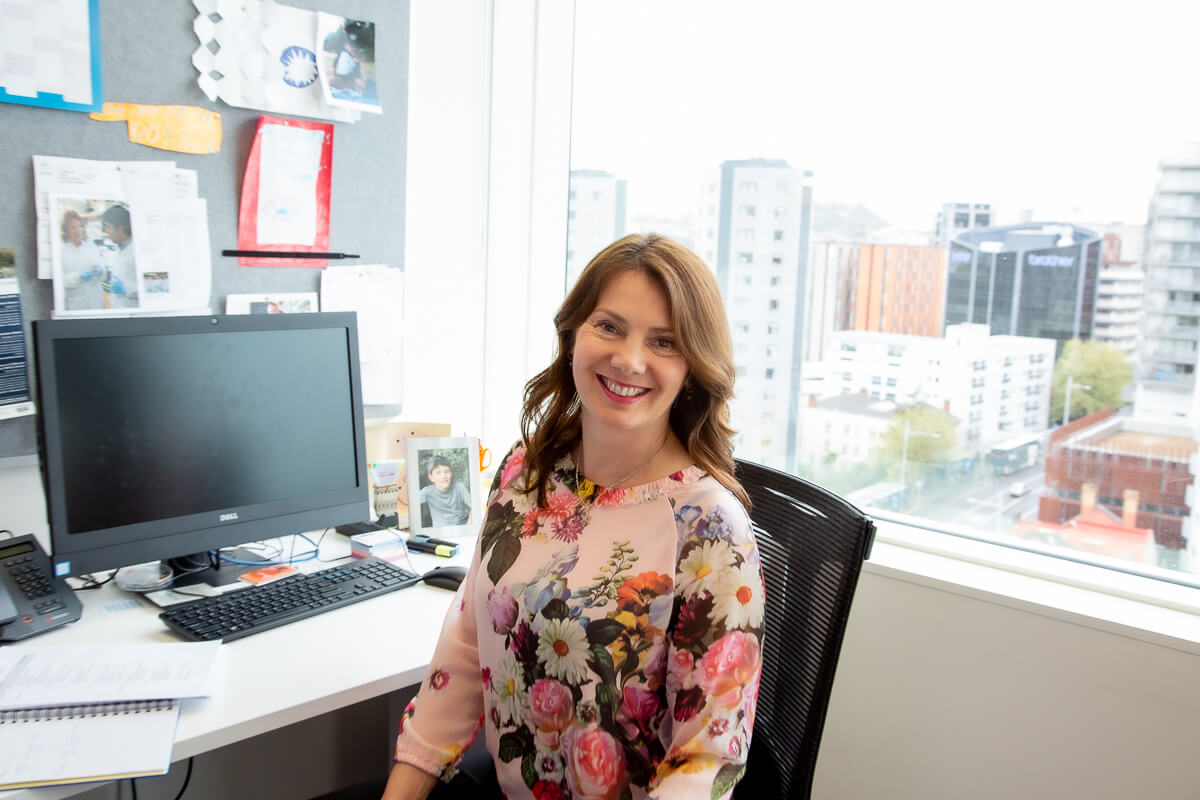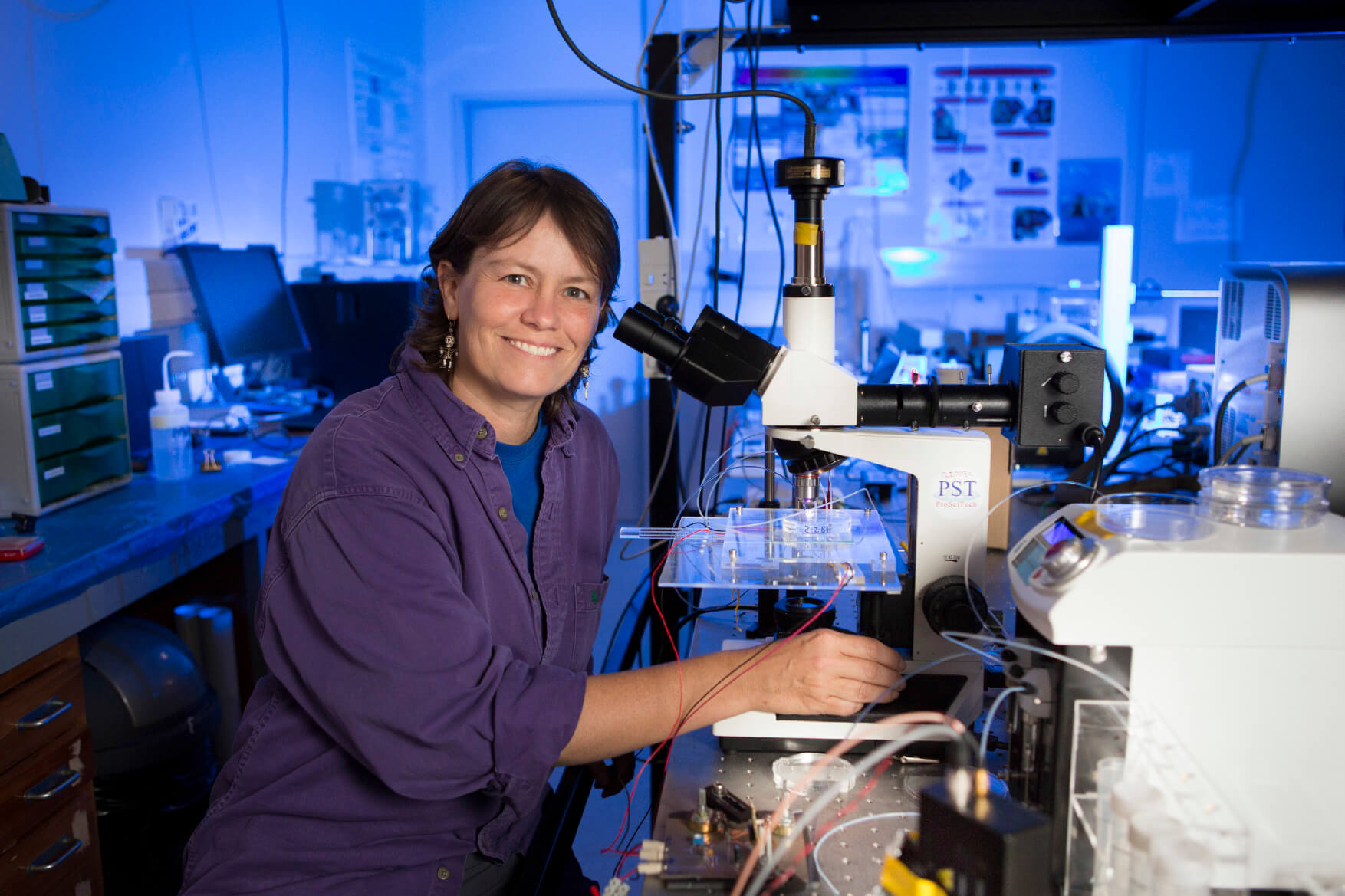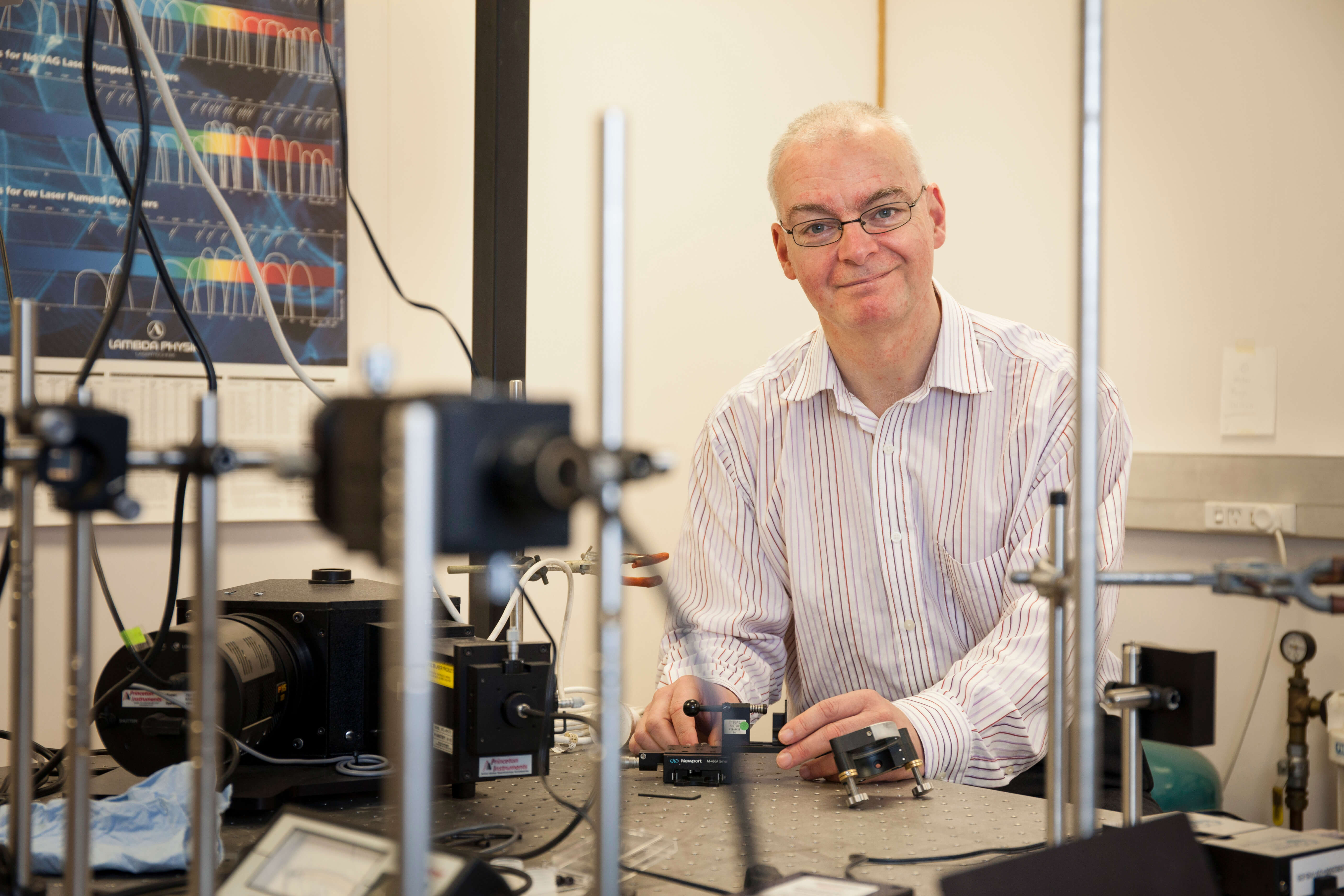MacDiarmid Institute Research Honours winners
18 October, 2019
Last night, five MacDiarmid Institute-related researchers were awarded medals at the Royal Society Te Apārangi 2019 Research Honours ceremony.
Each year, the Royal Society Te Apārangi hosts an awards ceremony for research, scholarship and innovation in Aotearoa. The event celebrates the achievements of researchers and scholars throughout New Zealand who have strived for and realised excellence in their various disciplines.
2019 Hector Medal: Professor Jadranka Travas-Sejdic

Building bionic - biosensing, biomedicine, bioelectronics
MacDiarmid Institute Principal Investigator Professor Jadranka Travas-Sejdic FRSNZ has been awarded the Hector Medal for her outstanding contribution to the field of advanced polymers and nanomaterials and their application in biosensors, biomedicine, and bioelectronics.
The Hector Medal is awarded for outstanding work in chemical, physical sciences, or mathematical and informational sciences.
Based at the School of Chemical Sciences at The University of Auckland, Professor Travas-Sejdic explores the fundamental aspects of materials composed of polymers and applies these findings to create polymer electronic devices for biomedical applications.
Jadranka’s research into stretchable electronics – electronics that can stretch and heal without loss of electronic function – is world-leading and has enormous potential for wearable and implantable electronics that can mimic biological functions.
She has developed a unique and versatile approach to the molecular engineering of intrinsically stretchable, adhesive and healable polymers, allowing her group to “tune” the material’s mechanical properties while preserving electronic properties.
Read more on the Royal Society website.
2019 Pickering Medal: Professor Cather Simpson

Ultrafast laser pulses for sorting sperm micromachining
MacDiarmid Institute Emeritus Investigator Professor Cather Simpson FRSNZ has been awarded the Pickering Medal for her pioneering research and commercialisation of innovative photonic technologies, addressing challenges with a New Zealand focus and global impact.
The Pickering Medal recognises excellence and innovation in the practical applications of technology.
Photonics – the creation, manipulation and use of light– is expected to see a dramatic rise in use this century. Professor Simpson, founder of the Photon Factory at the University of Auckland, is internationally recognised for her research in pulsed laser interrogation of light-matter interactions, which has provided critical insight into the photobehaviour of functionally important molecules. She is also recognised for applying this knowledge in exciting new areas – from sperm sorting to machining at the micro scale.
Cather has advanced the use of ultrafast laser pulses to probe molecules in the millions of billionths of seconds after absorbing light. These ultrashort laser pulses – less than 1 x 10-12 seconds long – interact with solid materials in extraordinary ways. For example, this technique helps us understand how the highly coloured haemoglobin in blood is so photostable, and why some art pigments last longer than others.
Read more on the Royal Society website.
2019 MacDiarmid Medal: Professor Keith Gordon

Using light to study molecules
MacDiarmid Institute Principal Investigator Professor Keith Gordon FRSNZ has been awarded the MacDiarmid Medal for his innovative use of light to understand the molecular structure of a wide range of different materials from solar cells, fish oils to plastics in the environment.
The MacDiarmid Medal is awarded for outstanding scientific research that demonstrates the potential for application for human benefit.
Keith Gordon is a Professor of Chemistry at the University of Otago. He uses the interactions between light and matter—known as spectroscopy—to probe the molecular structures present in materials. His research has direct applications across the fields of technology, health and the environment, including the design of solar cells, the quality of pharmaceuticals and foodstuffs and the identification of microplastics in our environment.
His initial training was in the spectroscopy of excited states: these are transient species created when molecules absorb light and can last for microseconds. Keith has developed and adapted his initial training to use spectroscopy across a range of areas, using mathematical models to remove noise and obtain clear spectral signatures.
In solar cell research, Keith and his team have improved polymer solar cell performance. They used a combination of spectroscopy with computational chemistry to derive better dyes for dye-sensitised solar cells. These redesigned solar cells are better at absorbing light and better at conducting the charges created by light absorption. He has also worked to optimise plastic-based solar cells.
Read more on the Royal Society website.
2019 Scott Medal: Professor Don Cleland
Keeping food in the goldilocks zone: not too hot, cold, dry or moist
MacDiarmid Institute Board Member Professor Don Cleland has been awarded the Scott Medal for making advances in refrigeration engineering.
The Scott Medal is awarded to a researcher in New Zealand for great merit in work of engineering, science and technology.
Don Cleland is a Professor of Process Engineering at the School of Food and Advanced Technology at Massey University. He is a renowned researcher and educator in the fields of refrigeration and heat pump technology and the refrigerated supply chain.
In New Zealand the impact of refrigeration has been immense, largely through food preservation and distribution. Many of our milk, meat and fruit products – major export earners – rely on effective and efficient refrigeration, as does the world's food supply chain.
Professor Cleland's research, including over 150 refereed publications, has provided a suite of performance prediction methodologies that are used by industrial refrigeration practitioners to optimise the design and operation of cold-chain and heating technologies. Specific areas he has focussed on include predicting the effect of product shape on rates of freezing, thawing, cooling and heating; estimating from the composition of a product how readily it will change temperature (thermal conductivity); and modelling how a product will lose or gain moisture during transport and refrigeration as well as predicting the air humidity in refrigerated applications. Moisture movement in packaged food during cold storage has a strong bearing on all of food quality, yield and the efficiency of refrigeration.
Read more on the Royal Society website.
2019 Rutherford Medal: Distinguished Professor Jane Harding

Better lifelong outcomes for mothers and babies
Former MacDiarmid Institute Board Member Distinguished Professor Jane Harding ONZM FRSNZ has been awarded the Rutherford Medal for her pre-eminent work determining the causes of newborn conditions and long-term consequences of interventions around the time of birth, leading to new therapies and understandings that have improved outcomes for mothers and babies around the world.
The Rutherford Medal is the highest honour awarded by the Society for an exceptional contribution to advancing and promoting knowledge for the benefit of New Zealand.
Distinguished Professor Harding is a physician scientist and Professor of Neonatology at the University of Auckland-based Liggins Institute. She addresses issues of clinical significance, tackling them through studying underlying physiology and clinical outcomes, leading clinical studies, then changing practice through systematic reviews and knowledge translation.
Jane’s work on low blood glucose levels in newborns has revolutionised management of affected babies around the world. Low blood sugar levels affect up to 15% of newborns and can cause brain damage. Professor Harding led the first randomised trial of a novel treatment: dextrose gel rubbed inside the baby’s cheek. This simple treatment was effective in reversing low glucose levels, halving admissions to neonatal intensive care for this problem while improving breast-feeding rates. This treatment is being adopted around the world, saving millions of families from separation soon after birth, and millions of dollars for healthcare systems.


